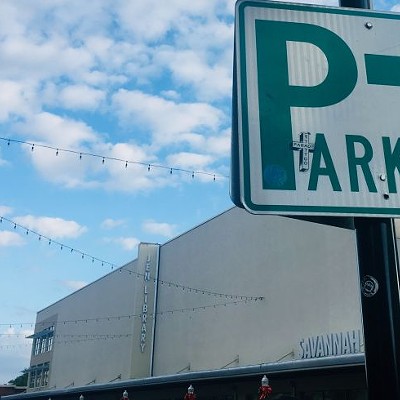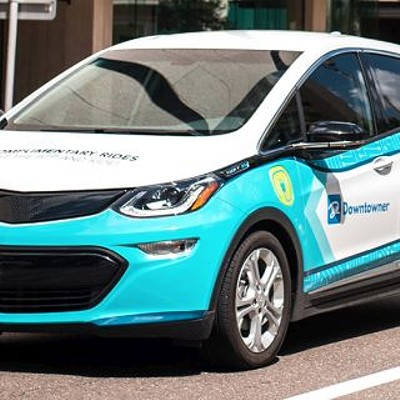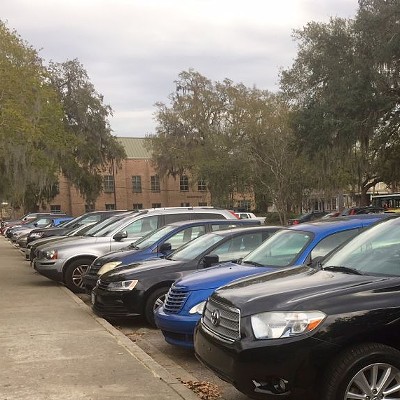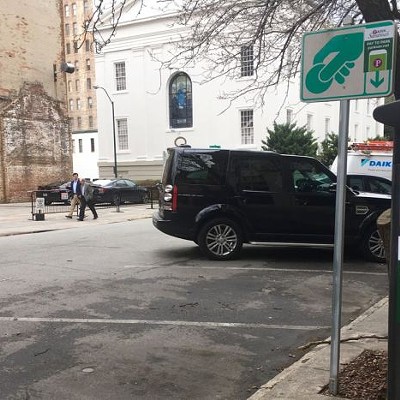AFTER A LOT of years in this business, I’ve learned it’s important not to overthink things. Some things just don’t pass the smell test.
One of them is the stinker of a new proposal to raise parking rates in downtown Savannah, and make the hours 10 a.m.-10 p.m. Monday-Saturday in the most high-demand zone.
While those are the headline-grabbers from the $250,000 consultant-created set of “mobility solutions” — part of what you pay for is shiny new words! — those misguided suggestions are part of a larger and generally much more reasonable update of Savannah’s parking system.
It’s my fond hope that the more soft-headed suggestions will get the ax, and some of the other proposals in the study will be enacted.
Politically speaking, the 10 a.m.-10 p.m. six day per week idea is the lamest of non-starters.
Hypothetically speaking, if I were a newly elected Mayor of Savannah, I’d make so much political hay gleefully bashing this idea that Donald Trump would blush and accuse me of going over the top.
When I posted about it on Facebook, the reactions were choice. Here’s a sampling:
“If the target demographic is people with disposable income, then that’s either well-to-do locals (who either already have on-property parking, street parking passes or money to spend on cab fare) or tourists (who are already paying hotel taxes and/or garage parking fees). So in reality, the meters end up disproportionately hurting low- to middle-wage earning locals just trying to park safely near work or run everyday errands.”
“When I play shows downtown my take home is about $25-$50. If I am having to pay to park for 2-3 of those hours it will take a large percentage of my take home. It of course hits the minimum wage workers even harder.”
“How on Earth did they not take into account the impact of residential and student parking for free in front of so many businesses? Many of the locals that live above us have garage and private spaces in the lot nearby but they park by the door to be convenient and block our customers from gaining access.”
“Tybee got greedy with their parking and now a lot of people don’t go there as much anymore. Tourists, yes. Locals, less. Who is Savannah for?”
“If Savannah wants visitors to pay for parking in evenings and on weekends, it will be expected to offer all the amenities of a major destination: direct airport from NYC, LA, Chicago, Houston, 24/7 dining, visitor access inside cemeteries after dark, sightseeing tours that cover many more historic districts (Ardsley Park, Victorian District, Starland District...), store hours that extend well beyond regular business hours...”
There were a couple of eloquent defenders. Here’s a quote from a friend successful in the tourism industry, with no ties to City government or the consultant:
“It will help the entire Historic District by dealing with an increasing number of visitors who threaten the infrastructure and ignore the nearly 1700 parking spaces that go unused. It’ll make people walk more, bike more and stay downtown longer. It’ll cut traffic, relieve snarled zones and spread parking more evenly.”
That in a nutshell is the City’s basic position. And a lot of the new proposals do make sense. Just not the one about 10 a.m.-10 p.m. six days a week.
See the entire “Parking Matters” study for yourself at www.savannahga.gov/parkingmatters
As I’ve written before, the truth is Savannah is a much smaller market than we tend to want to admit.
I’m convinced this misperception is the cause of much of our collective inability to adequately and realistically address longstanding local problems.
For example, our metro area is less than half the population and economic critical mass of Charleston — which charges six days a week for parking downtown.
Our metro area is at most about 1/20th the population and nowhere in the same galaxy of economic mojo as Atlanta —which charges six days a week until 10 p.m. in “entertainment zones,” i.e. most places you’d want to dine or shop.
Simply put, despite our frequent delusions of big-city grandeur, Savannah doesn’t yet have the diversified economy and critical mass to justify six day a week parking until 10 p.m.
What we are now is still a small town—a small town where nearly a third of the population lives in poverty.
While “livability” is often touted in studies like this, one of the most livable aspects of Savannah is precisely the fact that locals know they can drive downtown after business hours or anytime on the weekend and don’t have to pay for parking.
However, if one’s goal is to discourage locals from coming downtown to shop or have fun, and make more room — and make more money from — visitors, then this would be a quick way to do it.
I don’t even want to get into the issue of people poking around for debit cards and coins to feed meters in the dark at 9 p.m., given the drastic increase in armed robberies already going on downtown.
Don’t get me wrong — there’s a lot to like about this new parking study.
Increased share of revenue going to bicycle-friendly streets and paths is part of the package. That’s awesome.
Eliminating the confusing hodge-podge of rates and maximum parking times is long overdue. Over 20 different combinations of rate/hours! Ridiculous.
Making parking garages more competitively priced than on-street parking is also a no-brainer.
(For some reason us locals refuse to use parking garages. I’m as guilty as anyone. When I go to Charleston I have no problem parking in a garage. For some reason, in my hometown I refuse to use garages. I don’t understand this syndrome and I doubt the consultants do either.)
Again, I encourage you to check all this out for yourself. It’s not all bad.
But higher rates and more days and hours of paid parking, whatever else it might do, would mostly serve to increase the metaphorical distance between downtown and the rest of the city.































